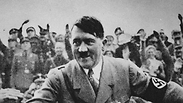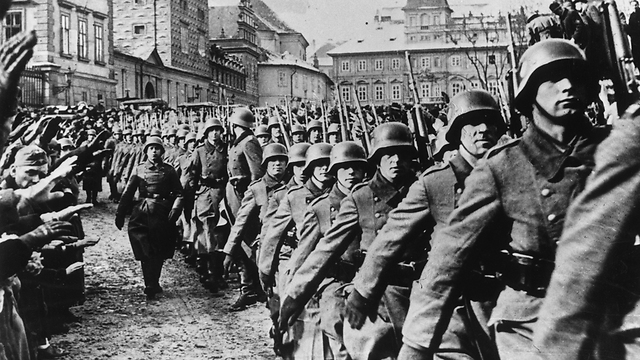

Nazi obsession with Jews: Annihilation as a mission
Op-ed: According to Prof. Alon Confino’s historical-cultural analysis, the extermination of the entire Jewish people was the Nazis’ supreme goal in World War II. They came to save the world from the Jews and from Judaism, and this annihilation was an imperative condition for the establishment of the German Reich.
Nazis and other Germans, Prof. Alon Confino writes in his book, "A World Without Jews: The Nazi Imagination from Persecution to Genocide" (New Haven: Yale University Press, 2014), labeled the Jews as one group which was responsible for all the problems in the world, from the dawn of humanity to the modern age.
The Jews were described as inherently evil, as the first modern Satan, as the embodiment of historical evil and as an eternal enemy—the enemy—of the German people. The Jews, Judaism and the Jewish civilization were described in the Nazi culture as a world that must be destroyed to the ground, so that the new German civilization could be created on its ruins.
The Jews, according to the Nazis, held the key to the revival of the new Nazi world: A world without Jews. It was necessary, therefore, to exterminate them. The annihilation of the Jews was described in the Nazi fantasy as a genesis, in which the Jewish world would be destroyed and make room for the Nazi world, Confino writes.

As the danger of being defeated in the war became more evident, wiping the Jews off the face of the earth became more and more pressing for the Germans. The Jews, Confino reiterates throughout his book, were at the center of the Nazi life—their annihilation was supposed to provide meaning to the Nazi empire.
According to Confino’s historical-cultural analysis, the Holocaust cannot be explained as just another one of the events of the horrible war, or as an outcome of its circumstances. The Nazi urgency to murder all the Jews but not the members of other persecuted groups, Confino writes, is explained by the Jews’ consistent apocalyptic role in the Nazi imagination. In other words, and Prof. Confino says it brilliantly numerous times, the annihilation of the entire Jewish people was the Nazis’ supreme goal in World War II. They came to save the world from the Jews and from Judaism, regardless of the price of this “salvation.” It was their mission in this world.
Providence, as Adolf Hitler told the Reichstag in December 1941, when he declared war on the United States, consigned to the German people the leadership of the battle which would shape the world’s image in the following 1,000 years—the uncompromising battle against the Jews and Judaism. This perception was not limited to the members of the Nazi party: Many Germans participated in the persecution of Jews, Confino states, while many others—basically, the entire German society—did not oppose the Nazi regime’s anti-Jewish initiatives. Not a single group in the German society rejected the Nazi offensive on the Jews and on Judaism—for the information of Israelis and Jews in Berlin.
Alon Confino, a Jerusalem resident and professor of history at Ben-Gurion University and at the University of Virginia, originally published his book in English. His research drew critical acclaim and a lot of professional appreciation, but it created quite a lot of discomfort as well.
In the past generation, the research of the history of Nazism has been dominated by schools of thought that deny the Holocaust’s historic-civilizationist uniqueness and see it as one component in the series of tragedies of the 20th century. The denial of the Holocaust’s uniqueness is also reflected in modern politics: In a Twitter post, for example, Radical left-wing French presidential candidate Jean-Luc Mélenchon likened the ban on the Muslim burkini to the persecution of French Jews during the Holocaust.
The readers of Confino’s book, however, are exposed to a different historic truth: The annihilation of the Jews was the leading axis of the Nazi vision.
The Nazis saw the Jews as the world’s Satan, Confino writes, which is why they made the annihilation of the Jews their top priority and even more than that. The Holocaust alone provided meaning to the Nazi Armageddon. The idea of exterminating the Jews was, therefore, not a Nazi version of European anti-Semitism or part of the policy of oppressing populations in occupied countries. It was, according to Confino, a cornerstone, a redemption commandment and an imperative condition for the establishment of the German Reich.
The Israeli public would benefit from discussions of Confino’s book and of the Holocaust research in general on the electronic media during Holocaust Remembrance Day, instead of more photographed personal stories. And if not instead, then at least in addition. On Holocaust Remembrance Day, we must not only cry—we must also learn.
















